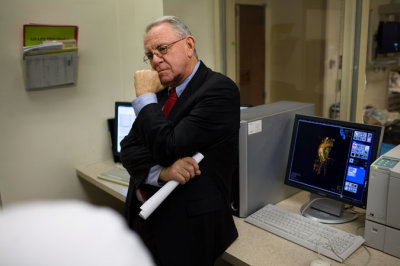CEO’s of “Non-profit” hospitals rake in millions
 December 7, 2014- The NY Post reports the list of multi-million-dollar salaries enjoyed by CEO’s of the major New York City hospitals, even after they retire. Read more »
December 7, 2014- The NY Post reports the list of multi-million-dollar salaries enjoyed by CEO’s of the major New York City hospitals, even after they retire. Read more »
 December 7, 2014- The NY Post reports the list of multi-million-dollar salaries enjoyed by CEO’s of the major New York City hospitals, even after they retire. Read more »
December 7, 2014- The NY Post reports the list of multi-million-dollar salaries enjoyed by CEO’s of the major New York City hospitals, even after they retire. Read more »
Are Zyprexa, Risperdal, and Abilify overprescribed in children?
Update: June 11, 2012
Since our extensive coverage of the marketing strategies that led to wide misuse of antipsychotics, JNJ agreed to pay nearly $2.2 Billion in penalties to settle the DOJ investigation.
__________________________________________________________________________
January 12, 2010 By Steven Greer, MD
The antipsychotic drug market is one of the largest in the drug business. Zyprexa is Eli Lilly’s largest drug with an estimated $4.6 B (USD) in revenue for 2009 (Barclays estimates). Bristol-Myers Squibb’s Abilify is an important drug to the company with estimated 2009 revenue of $2.4 B. The Risperdal franchise for JNJ, at $2.3 B, and AstraZeneca’s Seroquel, at more than $4 B, are also vital to the respective companies.
Accompanying this massive revenue stream is one of the most powerful marketing and lobbying strategies in the world resulting in several million Americans now taking antipsychotics. Is classic schizophrenia with delusions and hallucinations really that prevalent or are these drugs being overprescribed in unapproved indications?
Evidence is growing that off-label prescribing of antipsychotics is leading to inappropriate usage of these drugs in the elderly nursing home setting and in the pediatric setting. More troubling, in the pediatric population, disadvantaged minority children are far more likely to be prescribed these drugs, leading to a lifelong sequelae of disease.
Pediatric psychiatrist. Dr. Correll, discusses whether drugs like Abilify, Zyprexa, Risperdal, Fanapt, Seoul, etc are overprescribed.
Recent studies have added to the literature showing the severe adverse events caused by antipsychotics (weight gain, diabetes, elevated lipids, suicide, etc.). In our previous story (below), Dr. Correll detailed the metabolic syndrome that arises rapidly in children on antipsychotics.
Antipsychotics in children associated with significant weight gain and elevated lipids
The use of antipsychotics in children is controversial for many reasons. The data to support this practice is scant and biased by industry funding. The U.S. Senate has documented this at length. Data are now mounting that show antipsychotics create significant adverse events, including large weight gain and elevated cholesterol, or “metabolic syndrome” in many cases. Given the ages of the children, these adverse events are harmful to development and may shorten lifespan.
Christoph Correll, MD, pediatric psychiatrist and recent author of a white paper in JAMA on this topic, discusses the adverse events in children associated with antipsychotic usage.
Topics discussed:
June 15, 2010
Alon Mogilner, MD PhD, neurosurgeon and specialist in neuromodulation procedures such as implanting deep brain stimulation, discusses the financial hurdles limiting the adoption of deep brain stimulation for Parkinson’s and epilepsy, despite sensationally obvious outcomes.
Sandeep Jauhar, MD, Director of the heart failure program at North Shore Long Island Jewish Hospital, discusses current limitations of inotropes and the drug in development, CK-452, being developed by Amgen and Cytokinetics.
The proposed updates to the psychiatric diagnostic manual, DSM-V, are being reported in the press. DSM guidelines are highly influential to the prescribing patterns and influence the drug markets. One proposed change is to make the diagnosis of bipolar disorder more difficult, and to create a separate new diagnosis to describe the aggressive and violent kids that comprise the majority of the “bipolar” adolescent group now.
The psychiatric community clearly understands the pressures from Congress, the FDA, and other sources that are highlighting the major safety problems associated with antipsychotics in children, and the lifelong stigma of the diagnosis. For a thorough discussion on the matter, The HCC interviewed a child psychiatry specialist Christoph Correll, MD.